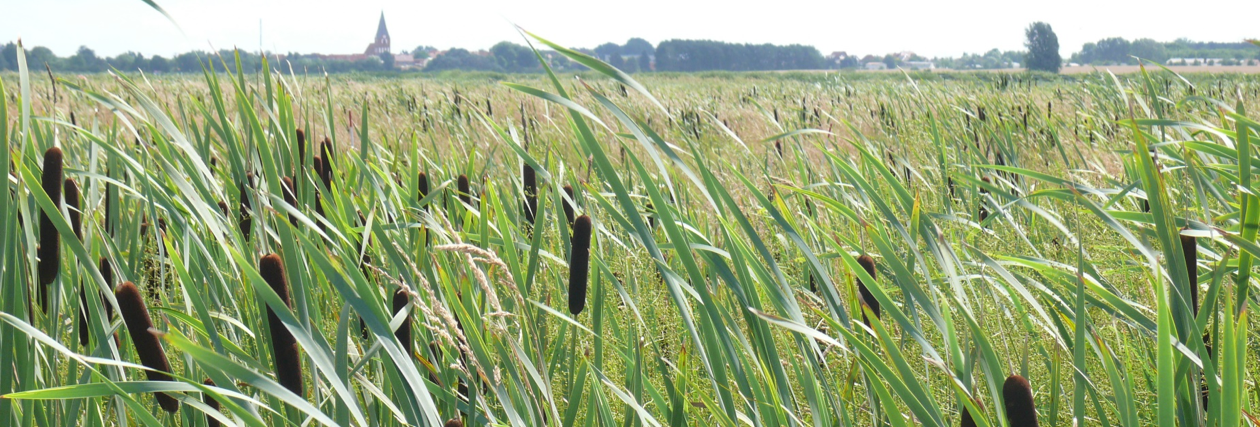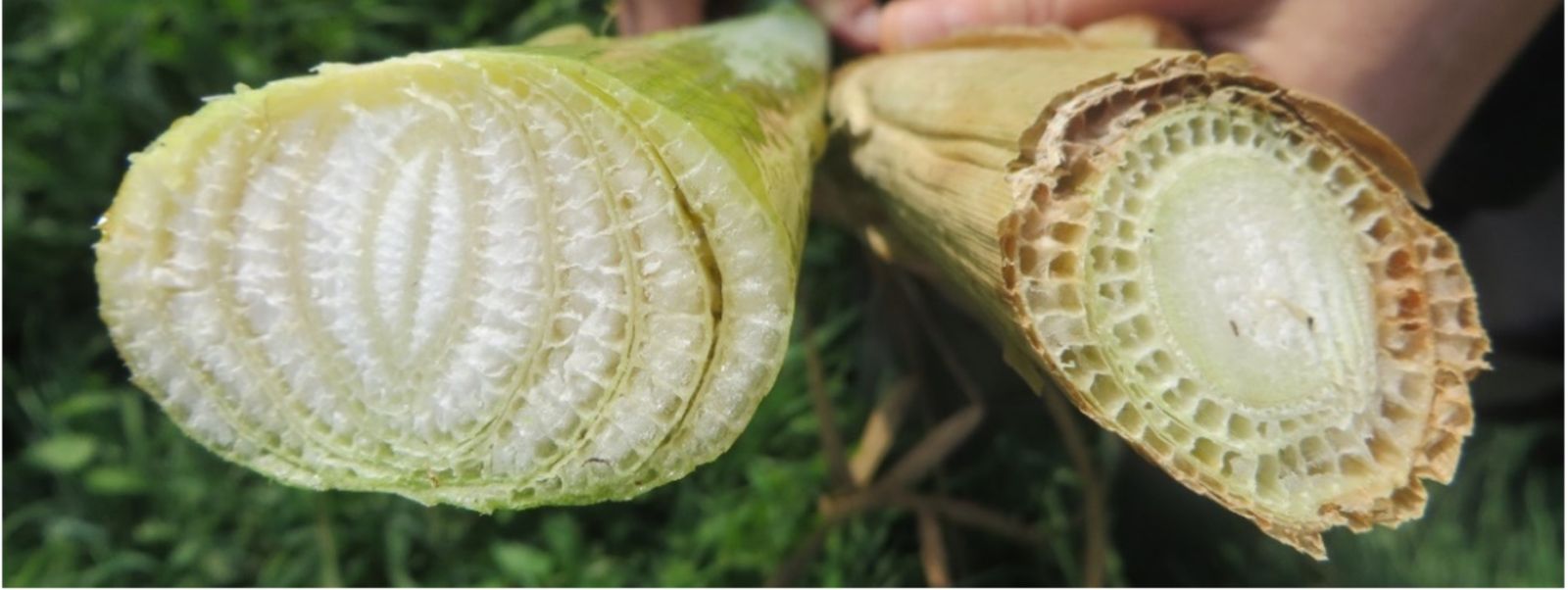Paludiculture in practice: Optimisation of cattail and reed cultures
Background

Paludiculture is receiving increasing political attention. As a land use concept for wet and rewetted peatlands, it combines the productive use of peatlands with the preservation of the peat, thus minimising height loss, soil degradation and CO2 emissions. In addition, the rewetting of peatlands improves the provision of ecosystem services such as water retention, evaporative cooling, nutrient retention and creates substitute habitats for peatland-typical species. However, even for well-known and partly traditionally used species such as reed and cattail, there is still a considerable need for research and development along the entire production chain. There is a lack of field-scale implementation areas which are essential for economic and ecological evaluation.
Project goals
In the joint project Paludi-PROGRESS, the cultivation of cattails (Typha spp.) and reeds (Phragmites australis) as new permanent crops on wet peatlands is being tested and further developed. The biomass has a high value creation potential based on a material use in construction and insulation.
- The focus of the ecological and economic research is on the cattail cultivation trial (approx. 10 ha) established in the Paludi-PRIMA project near Neukalen/ Mecklenburg-Western Pomerania.
- On this site, the ecosystem services are quantified in terms of carbon, water and nutrient balance as well as biodiversity.
- Furthermore, the project addresses challenges identified when setting up the field trial, such as a more cost-effective stand establishment through sowing and an efficient water management.
- For a process-based and quantitative understanding, the influence of water level on plant growth and biomass decomposition as well as on greenhouse gas emissions is investigated under controlled conditions (mesocosm experiments).
- The harvest of reed for thatching roofs is a traditional, commercial use of wet sites in northern Germany. In PROGRESS, traditional reed cutting areas are investigated in order to derive recommendations for the targeted cultivation of reeds on peatlands that are to be rewetted.
- Real practical data on stand establishment, management, harvesting, productivity and biomass quality will be collected for the practical cultivation of cattails and traditional reed beds as a basis for an economic evaluation.
The exchange of knowledge with other pilot areas and the transfer of knowledge on the implementation of paludiculture, e.g. via field trips, Open days and workshops, is a central concern of the project.
Work packages
|
WP 1: Coordination, field trial and knowledge transfer |
|
WP 2: Seed production and sowing of cattails |
|
WP 3: Plant growth and biomass decomposition during water level fluctuations |
|
WP 4: Stand development and biomass quality |
|
WP 5: Water and nutrient balance in cattail cultivation |
|
WP 6: Carbon balance and climate footprint of cattail cultivation |
|
WP 7: Working time studies and land lease for the field trial |
|
WP 8: Production procedures and economic evaluation |












